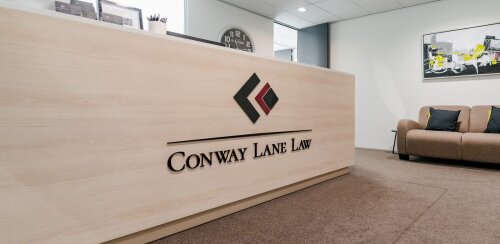Best Collaborative Law Lawyers in Rangiora
Share your needs with us, get contacted by law firms.
Free. Takes 2 min.
Free Guide to Hiring a Family Lawyer
List of the best lawyers in Rangiora, New Zealand
1. About Collaborative Law in Rangiora, New Zealand
Collaborative Law is a structured, non adversarial approach to resolving family law disputes. In Rangiora and the wider Canterbury region, it involves a team of qualified professionals who work with you and the other party to reach a mutually acceptable agreement. The process prioritises open communication, joint problem solving, and clear documentation, with the aim of reducing court litigation and preserving relationships where possible.
In practice, you typically hire a collaborative lawyer (solicitor) who commits to not representing you in court if the matter proceeds to litigation. If the process fails, those same professionals generally do not continue with you in court, and new legal counsel must be engaged for traditional court dispute resolution. This framework is supported by national laws and professional guidelines in New Zealand.
Rangiora residents often access Canterbury based law firms that offer collaborative services, and they can connect with local mediators, financial advisors, and parenting specialists who participate in the collaborative team approach. This local ecosystem helps tailor the process to agricultural and rural assets common in the region, as well as urban and family-centric needs in Rangiora.
According to New Zealand legislation and official guidance, collaborative law is categorized as a form of non adversarial dispute resolution used within family law matters. Source: legislation.govt.nz
2. Why You May Need a Lawyer
Here are concrete, Rangiora specific scenarios where engaging a collaborative lawyer can be beneficial.
- You and your partner own a family farm near Rangiora and want to structure a fair asset split that protects farming operations and succession plans without court involvement.
- A parenting arrangement needs to be formalised after a separation, with a focus on both parents maintaining strong relationships with children living in Rangiora and surrounding rural communities.
- There is a family business in Canterbury that requires a collaborative plan for ownership, future management, and profit distribution while avoiding contentious court litigation.
- There are concerns about disclosure and transparency of finances, including superannuation and rural property, which you want addressed in a controlled, non adversarial setting.
- One party has complex assets or overseas connections; you want a structured process to achieve a comprehensive agreement without a lengthy court process.
- You are seeking a resolution that minimises emotional distress and cost for you, your partner, and any children, while maintaining clarity on future arrangements in Rangiora.
In these scenarios, a collaborative lawyer can help with case assessment, creation of a participation agreement, structured sessions, and coordination with financial and parenting experts. This approach can lead to faster resolution, better asset protection, and clearer parenting plans than traditional litigation in many Canterbury area cases.
New Zealand courts and justice authorities recognise collaborative practice as a legitimate form of dispute resolution within family law, providing a structured pathway to agreement outside court. Source: justice.govt.nz
3. Local Laws Overview
Collaborative Law operates within the broader framework of New Zealand family law. The key statutes that commonly govern matters resolved through collaborative methods include:
- Family Proceedings Act 1980 - Governs how family disputes are initiated and processed in the courts. While collaborative law aims to resolve matters without litigation, this act provides the baseline legal context if court involvement becomes necessary.
- Care of Children Act 2004 - Sets out the standards for parenting arrangements and welfare of children when families separate. It informs the child focused outcomes that are often negotiated in collaborative sessions.
- Property (Relationships) Act 1976 - Regulates how property and assets are divided after relationship breakdowns, including farming properties and rural assets common in Canterbury. This Act has been amended over time to reflect modern relationships and financial arrangements.
Notes on dates and changes: the Care of Children Act 2004 came into effect in stages around 2005, and the Family Proceedings Act 1980 has been updated by amendments to reflect modern family law practice. For current text, consult the official NZ legislation site and any subsequent amendments.
In Rangiora, residents frequently rely on Canterbury based courts and services for any necessary court related steps, while using the collaborative process to resolve disputes efficiently. For exact wording and current provisions, refer to official sources listed in the Additional Resources section.
Official NZ legislation provides the current text and amendments for these acts, ensuring practitioners and the public access accurate legal standards. Source: legislation.govt.nz
4. Frequently Asked Questions
What is collaborative law in New Zealand and how does it work?
Collaborative law is a non adversarial process for resolving family disputes. Parties sign a participation agreement and work with their own lawyers and other professionals to reach a settlement without going to court. If court proceedings begin, the lawyers stop representing the parties.
How do I start a collaborative process in Rangiora?
Start by contacting a Canterbury based collaborative lawyer. You will have an introductory meeting to assess suitability, name the team, and sign a participation agreement before sessions begin. Typically, initial steps take 2-4 weeks.
What is the role of a collaborative attorney in this process?
The attorney represents only the client in the collaborative setting and helps prepare documents, facilitate discussions, and ensure legal clarity. Both sides keep the matter out of court unless collaboration fails.
Do I need to live in Rangiora to use collaborative law services?
No. You can engage a collaborative lawyer who serves Rangiora from Canterbury or wider New Zealand, and work with local mediators or financial specialists as needed.
How much does collaborative law cost compared to court litigation?
Costs depend on complexity, the number of sessions, and experts involved. Collaborative processes often reduce trial costs and medical, emotional, and time costs by avoiding long court battles.
How long does a typical collaborative case take in New Zealand?
Most straightforward matters settle within 3-6 months, with complex asset or parenting considerations extending to 6-12 months. Timelines vary with asset complexity and cooperation levels.
Is collaborative law legally binding or is it simply a negotiation framework?
Collaborative agreements are binding once signed, but they are not court orders unless converted into formal orders later. The process emphasizes voluntary, good faith negotiations.
Do I need to involve other professionals in the process?
Often yes. A team may include a collaborative attorney, a financial neutral, and a parenting specialist to address assets, income, and parenting plans.
What happens if my partner refuses to participate in collaborative law?
If one party refuses, the process cannot proceed as intended. You may consider mediation or court options, but your attorney can advise on the best path given the circumstances.
Where can I find a qualified collaborative lawyer in Canterbury?
Consult the NZ Law Society directory and regional dispute resolution networks to locate qualified collaborative practitioners in Canterbury or Rangiora.
Should I consider mediation before or alongside collaborative law?
Mediation can be complementary. Some teams use mediation as a preliminary step or in between collaborative sessions to help reach agreement on specific issues.
What qualifications should I look for in a collaborative practitioner?
Look for formal collaborative law training, membership in a recognized collaborative law organization, and experience handling family property and parenting matters in your region.
Can collaborative law address both property settlements and parenting arrangements?
Yes. It is commonly used for both financial settlements and parenting agreements, providing a coordinated approach to complex asset division and child welfare concerns.
5. Additional Resources
- Legislation - Legislation.govt.nz helps you read the text of acts such as the Family Proceedings Act 1980, Care of Children Act 2004, and Property (Relationships) Act 1976, along with amendments. https://www.legislation.govt.nz/
- New Zealand Courts - Official source for family court processes, alternative dispute resolution options, and guidance on collaborative practice in New Zealand. https://www.courts.govt.nz/
- Ministry of Justice - Provides information on family disputes, dispute resolution services, and how to navigate family law in New Zealand. https://www.justice.govt.nz/
- New Zealand Law Society - Professional body offering resources for the public on family law and collaborative practice, and a directory of practitioners. https://www.lawsociety.org.nz/
6. Next Steps
- Clarify your goals - Write down what you want to achieve in terms of assets, parenting, and timelines. This helps you and your lawyer identify the right collaborative approach. (1-2 days)
- Identify potential practitioners - Search Canterbury and Rangiora law firms offering collaborative law services. Use the NZ Law Society directory and local dispute resolution networks. (1-2 weeks)
- Arrange initial consultations - Schedule two or three meetings with different practitioners to assess fit, experience, and approach. Prepare questions about fees and team structure. (2-4 weeks)
- Check the participation agreement - Review the agreement that outlines each party’s commitments and the process if sessions end without agreement. Have your solicitor explain clauses clearly. (1 week)
- Assemble your collaborative team - Confirm whether you will use a financial neutral, a parenting specialist, and any other experts. Ensure everyone understands their role. (2-3 weeks)
- Gather and organize documents - Collect property records, income details, and parenting information to share with the team. (2-6 weeks)
- Begin collaborative sessions - Start the process with joint sessions and individual meetings as needed. Track progress and adjust timelines as required. (4-12 months depending on complexity)
Disclaimer: This guide provides general information only and does not substitute for legal advice. For tailored guidance, consult a qualified collaborative lawyer in Rangiora or Canterbury who can assess your specific situation.
Lawzana helps you find the best lawyers and law firms in Rangiora through a curated and pre-screened list of qualified legal professionals. Our platform offers rankings and detailed profiles of attorneys and law firms, allowing you to compare based on practice areas, including Collaborative Law, experience, and client feedback.
Each profile includes a description of the firm's areas of practice, client reviews, team members and partners, year of establishment, spoken languages, office locations, contact information, social media presence, and any published articles or resources. Most firms on our platform speak English and are experienced in both local and international legal matters.
Get a quote from top-rated law firms in Rangiora, New Zealand — quickly, securely, and without unnecessary hassle.
Disclaimer:
The information provided on this page is for general informational purposes only and does not constitute legal advice. While we strive to ensure the accuracy and relevance of the content, legal information may change over time, and interpretations of the law can vary. You should always consult with a qualified legal professional for advice specific to your situation.
We disclaim all liability for actions taken or not taken based on the content of this page. If you believe any information is incorrect or outdated, please contact us, and we will review and update it where appropriate.









